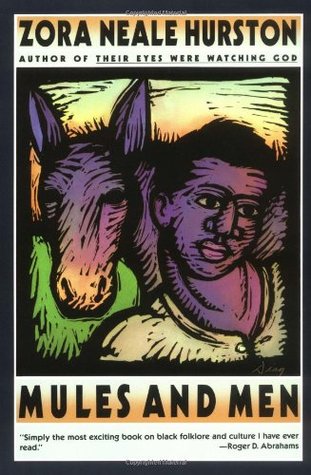
I was excited to read this book because I understood it was a collection of
African-American oral tradition, and I love Zora Neale Hurston from what I've read
of hers. I was expecting tall tales and fables along the lines of American
pioneering tales like Paul Bunyon and Pecos Bill. It turned out to be a sort of
fly-on-the-wall account of a form of small talk used among the black men and women
from Hurston's native region when they have time to kill. Hurston approaches them
to record their "lies" which is exactly how they refer to these anecdotes. It's a
very fun and unique variety of spinning tall tales and is a great feat of
anthropological record for Hurston to have undertaken, history thanks her.
Unfortunately her writing surrounding the "lying" sections is very precise and
lacks color. Fortunately the "lies" themselves are jam packed full of colorful
language and expressions. Footnotes are provided for strange terms but many of the
terms are still used today while many of the terms without notes are foreign to me
and without explanation. The book continues in the same way for half the book and
starts to get a little stale and then completely shifts gears as she moves from
Florida to Louisiana in the second part of the book. The second part is a
fascinating account of Voodoo culture and practices. It turns out that during her
research for this book she became an ordained witch doctor of sorts. The subject
matter in this section is much more interesting but the writing is no more colorful
than the last section and is rarely spiced up by stories collected from other
people. The records she keeps in this section are very scientific and essentially
in the form of a list.
If you're reading this to be taken away by the beauty of human story telling you
may be disappointed but if you're looking for a purely anthropological and
historical account of two little recorded pockets of Early 20th Century Southern
black culture you're in for a real treat.